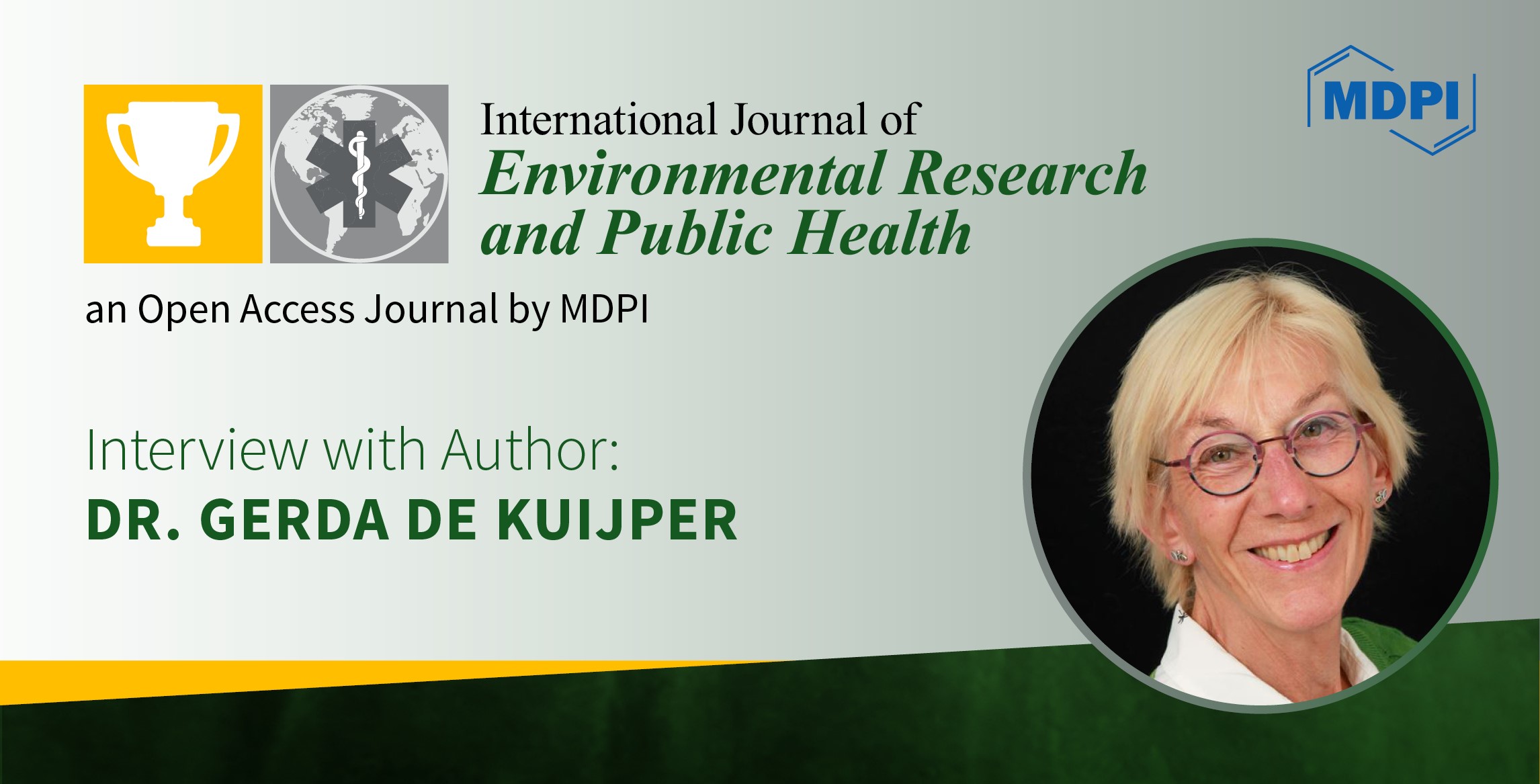
International Journal of Environmental Research and Public Health | An Interview with the Author—Dr. Gerda de Kuijper
We are very pleased to announce an impressive interview conducted with Dr. Gerda de Kuijper, who has recently published an outstanding article in the International Journal of Environmental Research and Public Health (IJERPH, ISSN: 1660-4601). In this interview, we delve into the latest advancements, challenges, and future directions pertaining to her research.
Name: Dr. Gerda de Kuijper
Affiliation: 1Department of Child and Adolescent Psychiatry, University of Groningen, University Medical Center Groningen, Hanzeplein 1, 9713 GZ Groningen, the Netherlands; 2Mental Healthcare Drenthe, Department Centre for Intellectual Disability and Mental Health, Middenweg 19, 9404 LL Assen, the Netherlands
Interest: psychopharmacology; mental illness; intellectual disabilities; clinical assessment; dual (psychiatry) diagnosis
Paper:
“Integrative Care for Challenging Behaviors in People with Intellectual Disabilities to Reduce Challenging Behaviors and Inappropriate Psychotropic Drug Prescribing Compared with Care as Usual: A Cluster-Randomized Trial”
by Gerda de Kuijper, Josien Jonker, Karlijn Kouwer, Pieter J. Hoekstra and Annelies de Bildt
Int. J. Environ. Res. Public Health 2024, 21(7), 950; https://doi.org/10.3390/ijerph21070950
Available online: https://www.mdpi.com/1660-4601/21/7/950
The following is an interview with Dr. Gerda de Kuijper:
1. Could you briefly introduce yourself to our readers?I live in the Netherlands, in the northeast of the Netherlands, and I am an intellectual disability physician, but also a researcher. I'm affiliated to a center for intellectual disability and mental healthcare and the Academic Collaborative on Intellectual Disability and Mental Health, Medical Centre University Groningen, Netherlands. It's important to know that in the Netherlands the care for people with intellectual disability is organized separately from the care for people with mental health problems, so our center and the research activities of the Academic Collaborative, at the cutting edge of mental healthcare and intellectual disability care is rather unique in the Netherlands.
2. What is your current area of research? What motivated you to pursue this research topic, and how did you formulate your research?My current area of research is people with intellectual disability and comorbid mental disorders. I'm especially interested in challenging behaviors, because there are a lot of underlying causes of these behaviors, including somatic causes but also mental disorders and environmental circumstances. Often people with intellectual disability get treatments with psychotropic drugs for challenging behavior, but often that may be not a very good choice because underlying causes are not treated.
People with intellectual disability form a very interesting study population, and they are nice people to engage with. Currently, I have no clinical practice anymore, but I have ample clinical experience and practiced for many years with people with intellectual disability as my patients. This patient group shows a large variety i.e., when you have someone who has a mild intellectual disability, you often can't see anything on the outside, but when you talk with that person you have to use simple language. When people have a more severe intellectual disability, then you have to talk with the parents, the family, the support professionals, et cetera.
3. Have you ever encountered any difficulties while conducting research? How did you overcome them?Yes, it may be very difficult to carry out a research project in the intellectual disability care field. Because people who work in this care sector are often not very interested in research or have no time to cooperate. Their priorities lie in the care of their clients. Also, they are not used to registering in a standardized way what they are doing, how the patient’s health is, or how the patients behave. And often they have a day-to-day business which is more important to them than carrying out a research project. So, it is difficult to collect data.
4. Which research topics do you think will be of particular interest to the research community in the coming years?I think, regarding people with a disability, have you got what is a good living situation for them? In the Netherlands, there are lots of institutions and there may be groups of people living with behavior problems congregated in one institution. Well, the advantage may be the specialized care they receive, the disadvantage is that they may harm each other and often cannot rely on each other, so I think it's better when people with intellectual disabilities live in small living facilities in the community. In the Netherlands, that is difficult to do, but when they live in the community, it's difficult to organize the right kind of care for them because all the specialized professionals are in the institutions and they are not available for the community. And that's a problem not only in the Netherlands, but also in other countries.
5. What appealed to you about the journal that made you want to submit your paper? What benefits do you think authors can gain when publishing their articles in IJERPH?It's environmental, and I told you about the importance of the environment for people with intellectual disabilities. And it's also a public health issue. My area of research also is how you organize your care, which is a public health issue. So, I think it's a very good journal for the paper I've published.
6. We are an open access journal. How do you think open access impacts the authors?It's more accessible for a lot of students and clinicians.
